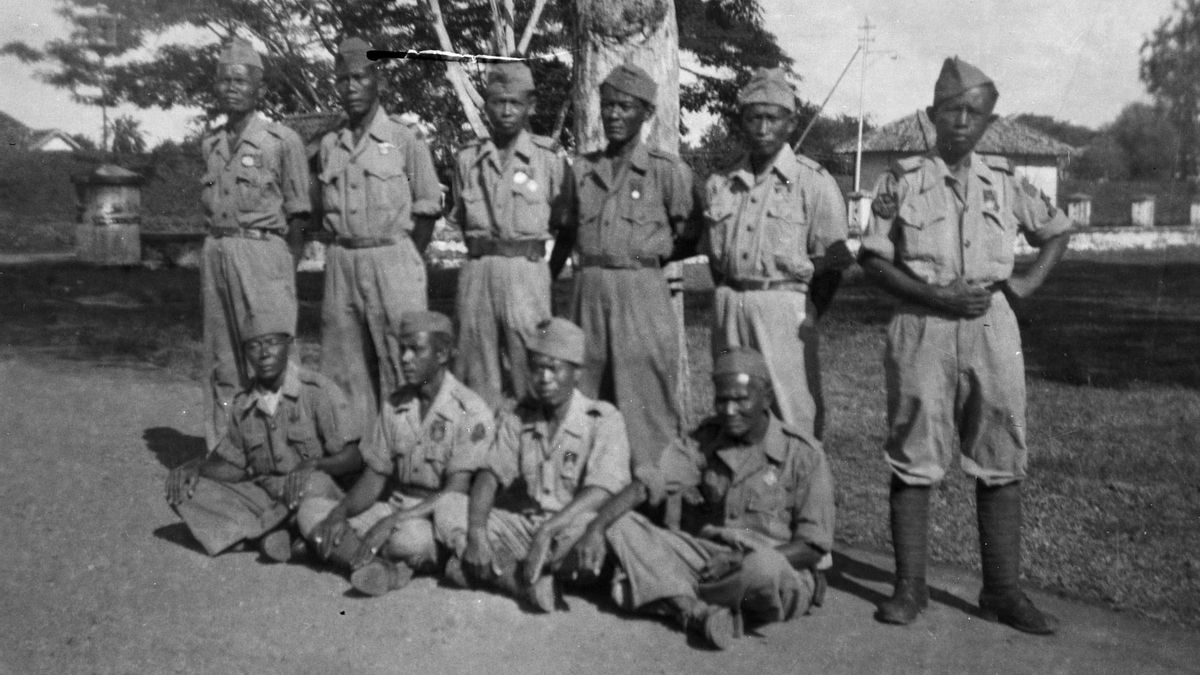JAKARTA - The role of the Dutch colonial government as a moral police has become a public secret. Efforts to eradicate moral and moral ills have been encouraged since the beginning of colonizing Indonesia. Also in eradicating homosexuals.
The colonial government established a special unit of moral police (zendenpolitie). The police force, which consists of many bumiputra, has the task of arresting homosexual men.
The massive raids on homosexual practices from 1938 to 1939 were known as 'zendenschandaal' or moral scandals. The improvement of morality in the colony has been the focus of the colonial government since the beginning of occupying Batavia in 1619.
Abuse, adultery, and prostitution were fought by the company with the Council of the Church. Severe penalties have even been prepared to anyone who violates.
Later times flourished. From the beginning of the affairs of the Council of the Church, moral and moral maintenance became the duty of the police.
At its peak, in 1925 a moral police force was formed. This idea originated from the assumption of high-ranking Dutch officials who called upholding decency as the main feature of modern society.

However, morality control has not included a homosexual as a criminal. In fact, homosexual offenders tend to be ignored by the moral police.
The rule refers to Article 292 wetboek van Strafrecht —the Penal Code of the Dutch East Indies. The content of the article refers to pedophilia as a matter of criminality.
That is, as long as his sexual orientation is not committed on a minor under the age of 21, homosexuals are not considered criminals. However, all changed when it entered the 1930s.
During this period, homosexual scandals began to be considered as a blight in the Dutch East Indies government. Historian Marieke Bloembergen said the initial explosion of homosexual cases in the Dutch East Indies echoed political issues.
Many homosexual scandals among politicians have surfaced in Malaya, Germany, and the Netherlands. Despite having different scales, all show patterns that tend to be similar.
The patterns, backgrounds, objects, and reactions to handle them have been impressive if the moral police raids are related to competition and political power struggles. "Interestingly, these scandals, although not all the same size and size, are more or less developed with the same pattern," Marieke Bloembergen, in the book Cleanliness and Culture: Indonesian Histories (2011).
"They all occur in periods of political and economic insecurity, and in societies marked by sharp political divisions. All campaigns were initially directed at government officials or high-ranking parties. They start with rumors about the homosexual behavior of certain people, which is often (non-existent) supported by concrete evidence," he added.
The start of homosexual eradication operationsIn the Dutch East Indies, the insistence on removing homosexual behavior was encouraged by the Christian Party, Christelijke Staatspartij (CSP) and the Anti-Revolutionaire Partij (ARP). Through his plea to Governor-General Alidius Tjarda van Starkenborgh Stachouwer (1936-1942) in December 1936, they complained about the increasing sin of homosexuality among public figures and those who held important positions in government.
Similarly, the two parties called on the Dutch East Indies leadership to take immediate action to eradicate homosexuals deemed a crime.
"On 13 October 1936, the tactic (weakening political opponents) arrived in Batavia. The small newspaper, De Ochtendpost, began by publishing sensational reports on homosexual meeting places in the Dutch colonial capital as well as rumours that colonial officials were engaging in homosexual sex with underage Javanese 'children'," wrote Gary L. Atkins in the book Imagining Gay Paradise: Bali, Bangkok, and Cyber-Singapore (2012).
In response to a letter from the CSP and ARP Party, the Dutch East Indies government then stepped up its crackdown on morality violators. Between 1938 and 1939, police arrested 223 people.
Most of them are Europeans. They are also among the high-ranking officials suspected of having sex with underage boys.
"Police raids in the period 1938-1939 targeted men who were considered to be having sex with underage boys (under 21 years). According to article 292 wetboek van Strafrecht (penal code) of the Dutch East Indies, pedophilia is a criminal offence. The surprising thing is that in the previous period this action was allowed because the target was prostitution activities related to the trafficking of adult women and children," said Achmad Sunjayadi in the book [Bukan] Tabu di Nusantara (2018).
Of the 223 detained, 171 were found guilty. They were later sentenced and dismissed.
Therefore newspapers in the Dutch East Indies wrote many news with the term 'zedenschandaal' (moral scandal). Newspaper titles using the term, such as De Indische Courant 28 December 1938, which used the titles Het Zendenschandaal op West Java and De Sumatra Post on 7 January 1939, wrote the title Het Zendenschandaal op Java.
Other dominating terms are grote schoonmaak (moral cleansing) and reinigingsproces (purification process). "Of the 223 people detained, of whom for the purposes of intervention were interned, 171 were found guilty and sentenced," marieke Bloembergen wrote in another book, The Dutch East Indies Police (2011).
During that time, the dutch colonial government's massive raids were similar to the alleged communist mass arrests in 1926-1927. The method of arresting moral police is not even much different from the oppression that the police do to political actors.
In the interests of politics, moral police are fearlessly arresting homosexual offenders. The arrests were also hailed as an attempt to safeguard the noble morals of Europeans in the colony.
*Read more information about LGBT or read other interesting writings from Detha Arya Tifada.
Other MEMORYThe English, Chinese, Japanese, Arabic, and French versions are automatically generated by the AI. So there may still be inaccuracies in translating, please always see Indonesian as our main language. (system supported by DigitalSiber.id)











